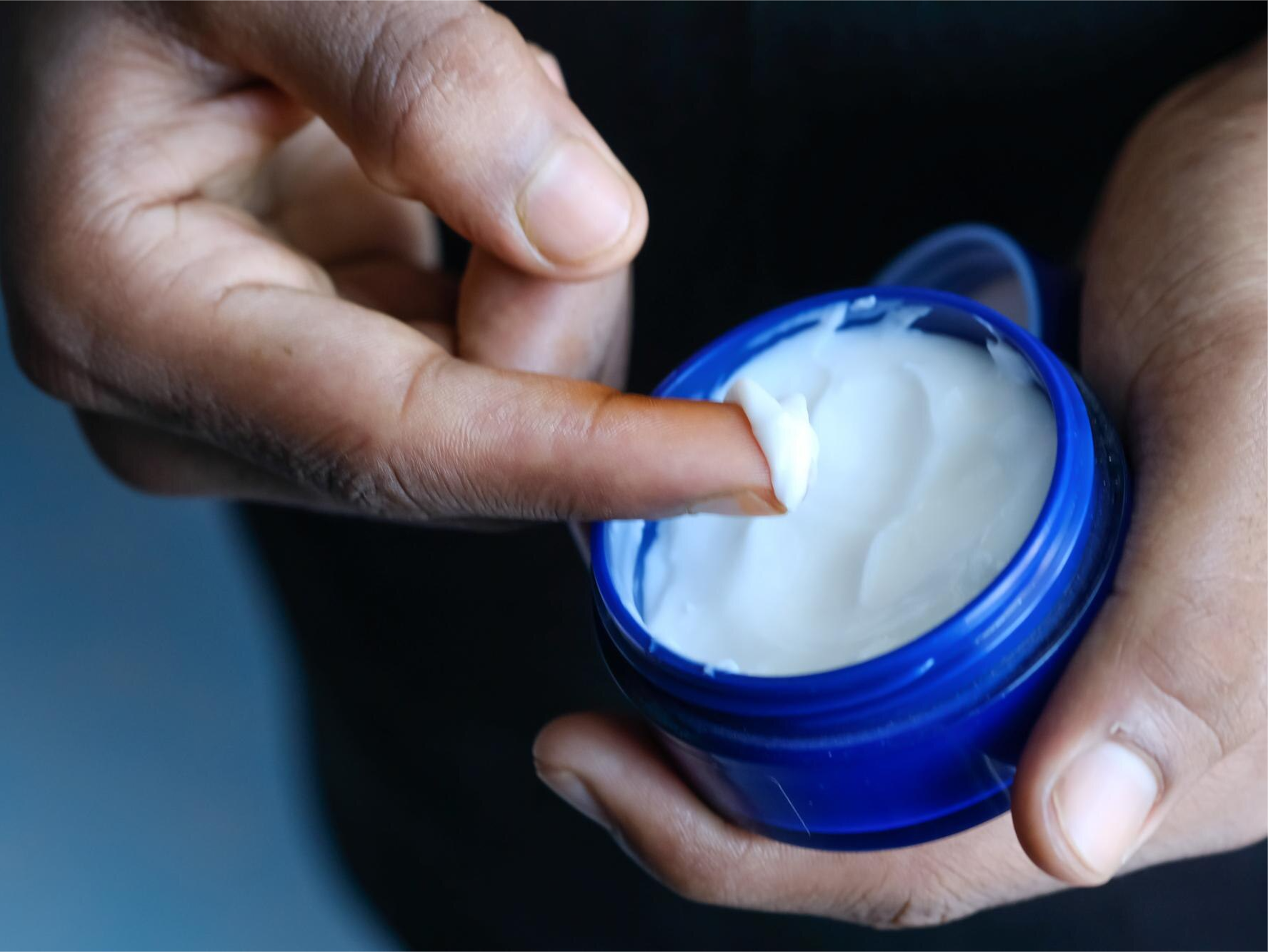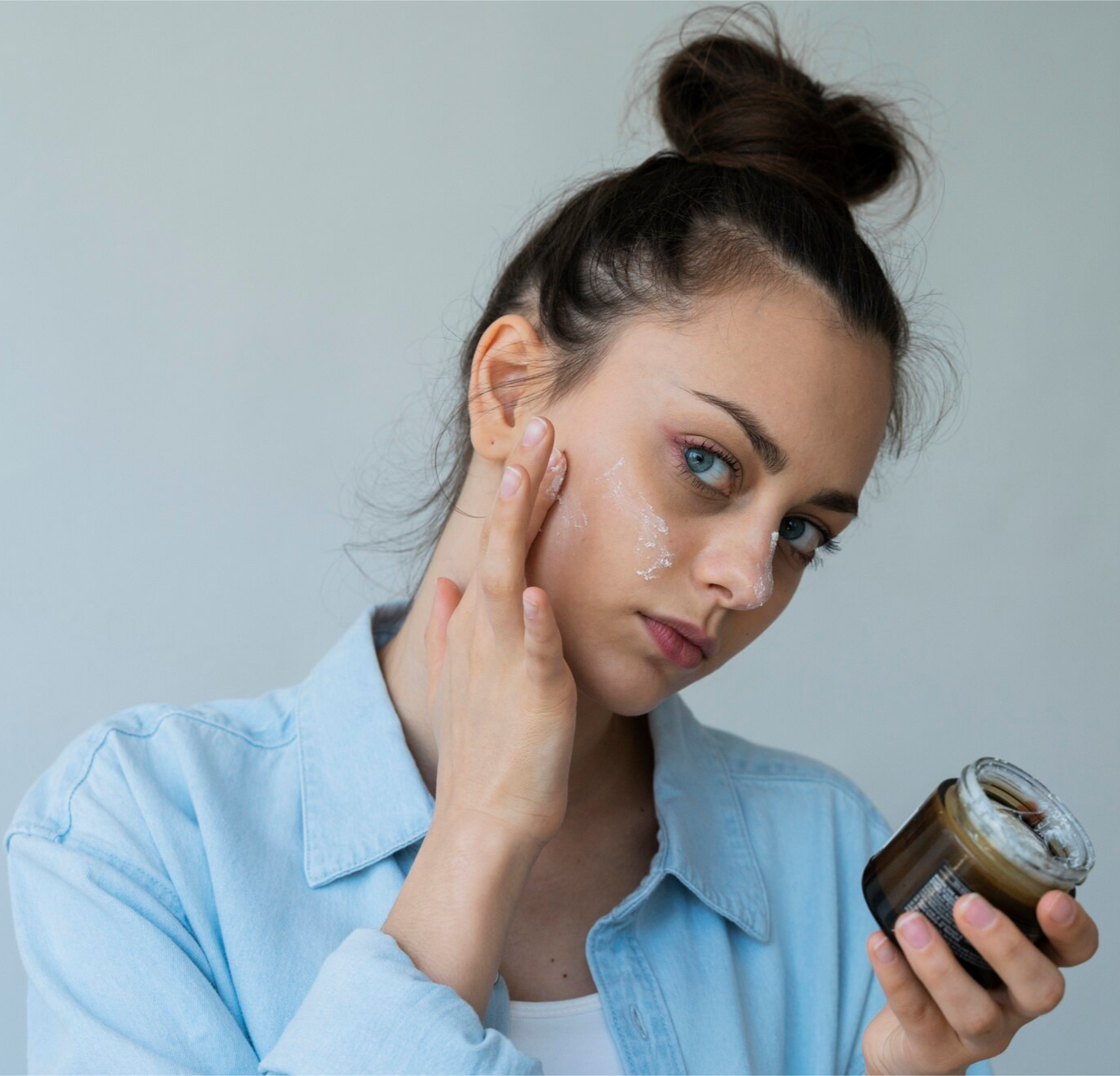In recent days, TikTok has been buzzing with videos claiming the benefits of using Vicks VapoRub for acne treatment. The viral trend has caught the attention of many, prompting people to search for information on how Vicks might help with acne.
Acne is a common skin condition that affects people of all ages, and finding effective treatments can often feel like a never-ending search. With the sudden rise in popularity of this hack, many are curious about whether Vicks VapoRub, a product typically used for colds and muscle aches, can be a miracle solution for acne.

In this post, we’ll explore the potential benefits and risks of using Vicks VapoRub for acne, backed by science and expert opinions, to give you a comprehensive understanding of this trend.
What is Vicks VapoRub?
Vicks VapoRub is an over-the-counter topical ointment primarily used to relieve symptoms of cough and muscle aches, commonly associated with colds and flu.
The product contains menthol, camphor, and eucalyptus oil—ingredients that have a cooling and soothing effect on the skin. These ingredients are typically applied to the chest or throat to relieve congestion or pain.
The strong, minty smell of Vicks has made it a go-to for cold relief for generations, but recently, some have claimed that it can also work wonders on acne-prone skin. However, it’s important to delve deeper into why people think Vicks can help with acne and whether it’s truly effective.
How Does Vicks VapoRub Work?
The active ingredients in Vicks VapoRub are menthol, camphor, and eucalyptus oil, each of which has properties that can potentially impact the skin. Menthol has cooling and soothing properties, which can help reduce redness and irritation on the skin.
Camphor, often used for its analgesic properties, might also have an anti-inflammatory effect. Eucalyptus oil is known for its antiseptic qualities and could help in fighting bacteria.
These ingredients, when applied to the skin, can create a tingling sensation, which may temporarily relieve discomfort. In the case of acne, the idea behind using Vicks is that the product’s cooling sensation and anti-inflammatory properties could calm inflamed acne and reduce swelling.
The eucalyptus oil, known for its antibacterial properties, might also help reduce the bacteria that contribute to acne breakouts. However, while the ingredients in Vicks can have beneficial effects on skin irritation, they don’t specifically target acne-causing factors such as excess oil production, clogged pores, or hormonal imbalance.
Can Vicks VapoRub Help with Acne?
The main reason why some people suggest using Vicks VapoRub for acne is due to its ability to reduce inflammation and kill bacteria, both of which play a role in the development of acne.
Acne occurs when pores are clogged with excess oil, dead skin cells, and sometimes bacteria, leading to breakouts. Since eucalyptus oil has known antibacterial properties, it could, in theory, reduce the bacteria present on the skin, thus preventing or reducing acne flare-ups.
Menthol’s cooling sensation may also help with calming the redness and irritation that often accompanies acne. Furthermore, camphor’s anti-inflammatory properties could help reduce the swelling and inflammation that causes acne to look more pronounced.
However, it’s important to remember that Vicks is not specifically formulated for acne, and its effectiveness in treating this condition may vary from person to person.
Potential Benefits of Using Vicks for Acne
-
Anti-inflammatory Properties: One of the primary benefits of using Vicks on acne is its ability to reduce inflammation. Acne, particularly cystic acne, can cause painful swelling, redness, and irritation. Menthol, camphor, and eucalyptus oil can help to reduce these symptoms, making acne appear less prominent and irritated.
-
Antibacterial Action: Eucalyptus oil has antibacterial properties, which could help fight the bacteria that contribute to acne development. Bacteria can get trapped in clogged pores, causing inflammation and pimples. By applying Vicks, the antibacterial action of eucalyptus oil may help to clear the pores and reduce breakouts.
-
Cooling Sensation: The cooling sensation from menthol can provide relief from the discomfort that comes with acne, particularly with inflamed pimples. It may offer temporary relief and calm the skin, which can be beneficial for those who struggle with painful breakouts.
Potential Risks and Side Effects
While Vicks VapoRub may offer some relief for acne, it’s important to be cautious about using it on your face. Here are some potential risks and side effects:
-
Skin Irritation: Vicks VapoRub is a strong topical ointment, and the menthol, camphor, and eucalyptus oils may irritate sensitive skin. People with sensitive skin or those prone to allergic reactions should avoid using Vicks on their face as it may cause a burning or stinging sensation.
-
Clogged Pores: While Vicks may seem to help clear acne in the short term, it could clog pores over time. The heavy consistency of the ointment could potentially clog pores, leading to more breakouts in the long run, especially for people with oily skin.
-
Not Formulated for Acne: Vicks VapoRub was not designed to treat acne, and there are no studies that specifically support its use for this purpose. Using a product outside of its intended purpose could lead to adverse effects, so it’s crucial to approach this treatment cautiously.
-
Allergic Reactions: Some individuals may be allergic to one or more ingredients in Vicks VapoRub, leading to redness, itching, or swelling. If you have known sensitivities to eucalyptus, menthol, or camphor, it’s best to avoid applying this ointment to your skin.
How to Use Vicks VapoRub for Acne Safely
If you decide to try Vicks VapoRub for acne, it’s important to proceed with caution. Here’s how you can use it safely:
-
Patch Test: Before applying Vicks VapoRub to your face, do a patch test on a small area of your skin, such as behind your ear or on your inner forearm. This will help you determine if you have an allergic reaction or sensitivity to the product.
-
Apply a Thin Layer: If you’re clear of any reactions, apply a thin layer of Vicks directly onto the affected areas. Avoid applying it near your eyes or any broken skin, as the menthol can cause intense stinging.
-
Leave it on for a Short Time: Don’t leave Vicks VapoRub on your skin for long periods. A few minutes may be enough to experience its cooling and anti-inflammatory effects. Overuse can result in irritation or clogged pores.
-
Moisturize Afterwards: After using Vicks VapoRub, make sure to moisturize your skin to prevent dryness, as the product can sometimes strip the skin of moisture.

Other Treatments for Acne
While Vicks VapoRub may help with certain aspects of acne, it’s not a comprehensive solution. There are more targeted treatments available that specifically address the root causes of acne. For example:
-
Topical Treatments: Benzoyl peroxide, salicylic acid, and retinoids are all well-known acne treatments that help to unclog pores, reduce inflammation, and kill acne-causing bacteria.
-
Face Masks: Clay masks and other acne-focused masks can help to absorb excess oil and clear the skin.
-
Healthy Skincare Routine: Consistently cleansing your skin with a gentle cleanser and using an appropriate moisturizer can help maintain clear skin. Additionally, a good sunscreen is essential to protect against sun damage, which can worsen acne scars.
-
Diet and Lifestyle: Diet and lifestyle play a significant role in skin health. Reducing stress, drinking plenty of water, and consuming a balanced diet rich in fruits, vegetables, and healthy fats can contribute to clearer skin.
Conclusion
The idea of using Vicks VapoRub for acne has certainly gained attention, especially with the surge of TikTok videos promoting the hack.
While the product’s ingredients—menthol, camphor, and eucalyptus oil—do offer anti-inflammatory and antibacterial properties, it is important to approach this remedy with caution.
Vicks was not designed for acne treatment, and its heavy consistency and strong active ingredients could cause irritation or clogged pores for some people.
If you decide to try Vicks VapoRub for acne, it’s essential to patch test and use it sparingly. However, for those who struggle with persistent acne, it’s best to stick to more scientifically-backed acne treatments that specifically target the causes of acne.
Always consult with a dermatologist before trying new treatments, especially if you’re unsure about the product’s effects on your skin.